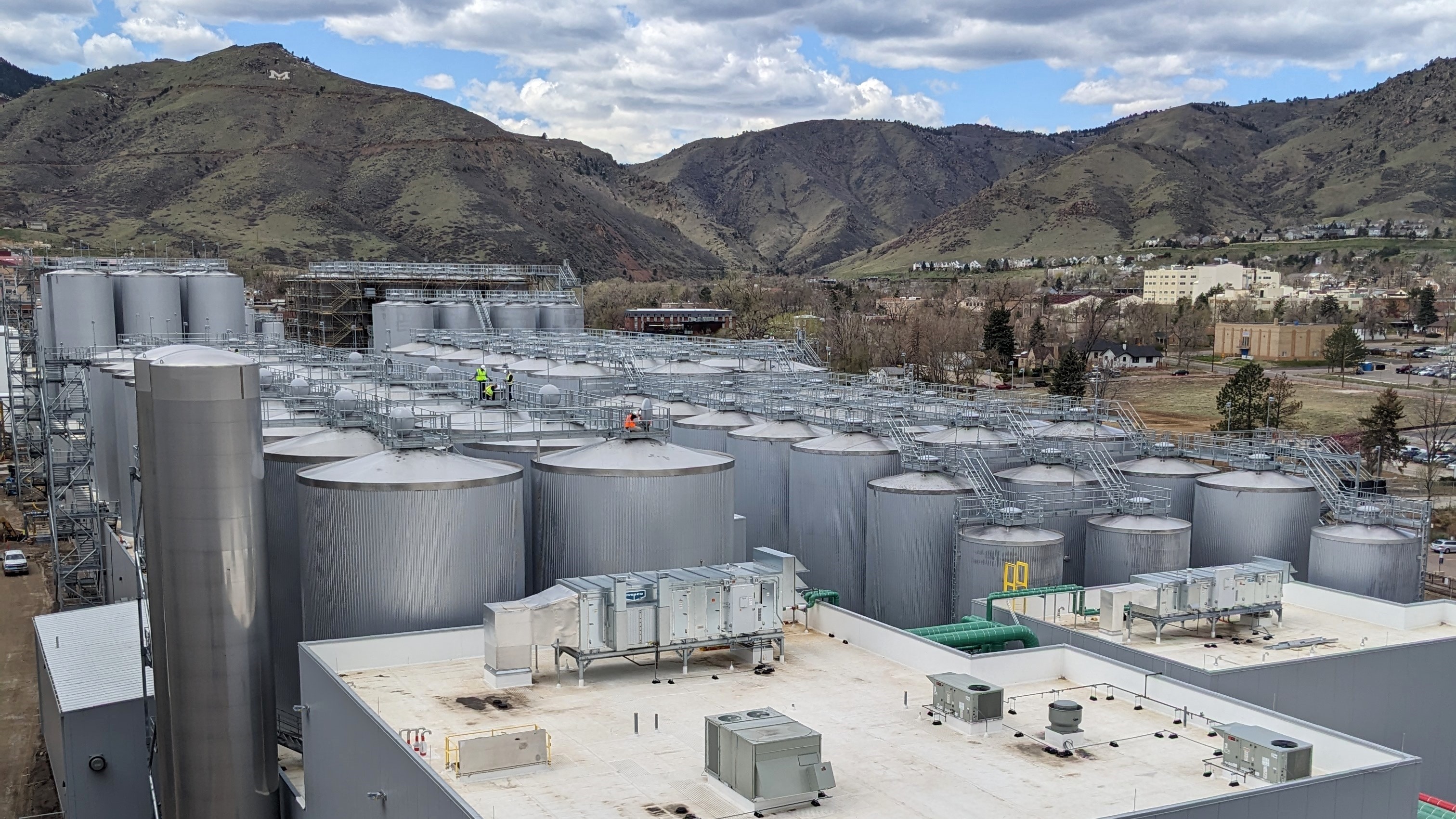✓ Molson Coors is investing in sustainability initiatives across the world
✓ The modernization project at its Golden brewery will bring major sustainability improvements
✓ The company is also phasing out plastic rings and sourcing more renewable energy
Darin McKnight, senior manager of corporate sustainability, spends a lot of time thinking about the future of Molson Coors.
That also allows him to understand the challenges of implementing sustainable practices in a complex global business.
“We have many initiatives underway to address our people and planet goals,” says McKnight. “We’ve done a lot, including improving water usage, sourcing renewable electricity, increasing the recycled content of packaging and decreasing the weight, and therefore amount of material, of packaging.”
Across the world, Molson Coors has sought to reduce its impact on the earth in ways that make business sense, from reducing its emissions to greening up its packaging and more. For instance, in Canada, the company has added several electric trucks to its distribution fleet. The U.K. has led the way in transitioning from single-use plastic, and in the Americas, it’s replaced plastic bottles with glass. Overall, more than 99.6% of Molson Coors’ packaging is reusable or recyclable.
Here are three projects that are leading to a more sustainable Molson Coors.
Golden’s modernized brewery opening soon
Molson Coors’ multi-hundred-million-dollar modernization of its Golden, Colo., brewery will have positive sustainability impacts, including lower energy and water consumption. Started in 2020, the project is named G150 in honor of the 150th anniversary of the brewery’s founding in 1873.
The overhaul of the largest single-site brewing facility in North America, and one of the largest in the world, includes the installation of new aging and fermenting tanks and state-of-the-art filtration facilities.
All this new equipment comes with sustainability benefits. The new brewery is expected to save millions of gallons of water per year and should substantially reduce energy usage, potentially by up to 30%. Use of ammonia is also expected reduce significantly – by approximately 50% – by instead using glycol to cool beer during fermentation and throughout the cellar.
It's expected to save Molson Coors millions of dollars a year, making the facility, which produces about a quarter of the company’s beer in the U.S., one of the most efficient breweries in the world.
“It’s the biggest project we’ve had in Golden in 50 years,” said Peter Coors, director of the G150 project. “But it’s aimed at preparing us to be successful for the next 50 years and beyond.”
The project is on track to be completed by this summer.
Beer brewed by the sun
In March, Molson Coors made an important step in its goal to source renewable electricity in Wisconsin. It became the first company to sign up for We Energies’ Renewable Pathway program.
For the multi-year agreement, Molson Coors will buy renewable electricity from the Badger Hollow Solar Park in Iowa County, Wis. Combined with a smaller renewable electricity agreement for the Leinenkugel’s Chippewa Falls brewery, the company now has renewable electricity agreements in place to cover nearly 100% of all operations in Wisconsin.
“Renewable energy is a key component of our emissions reduction plans, and the We Energies Renewable Pathway program is a great fit to help us get there,” says Rachel Schneider, Molson Coors’ vice president of sustainability.
Phasing out plastic rings from packaging
Molson Coors announced in 2022 that it would be removing single-use plastic rings from all its packaging. It’s right on target.
“We’re continuing the work through 2024, and are on track for completion in 2025,” says McKnight.
Instead of plastic, Molson Coors is moving to sustainably sourced, recyclable fiberboard-wrapped packages for four- and six-packs. Molson Coors' three Canadian breweries, in Toronto, Longueuil, Quebec, and Fraser Valley, British Columbia, have fully transitioned to the fiberboard packaging. In the U.S., several of Molson Coors’ breweries will complete the process of transitioning to fiberboard packaging this year and by early 2025 plastic rings will no longer be used in our production facilities.
McKnight previously worked as lead packaging engineer, starting work on the fiberboard wraps back in 2018. “There were many hours vetting, testing and scrutinizing this package selection, and I’m so proud to see it out in the world,” he says.
McKnight is proud of the work the company has done, especially because it required looking at every aspect of the business.
"Our goals help guide our efforts to advance our people and planet initiatives to create a world to celebrate,” he says.

